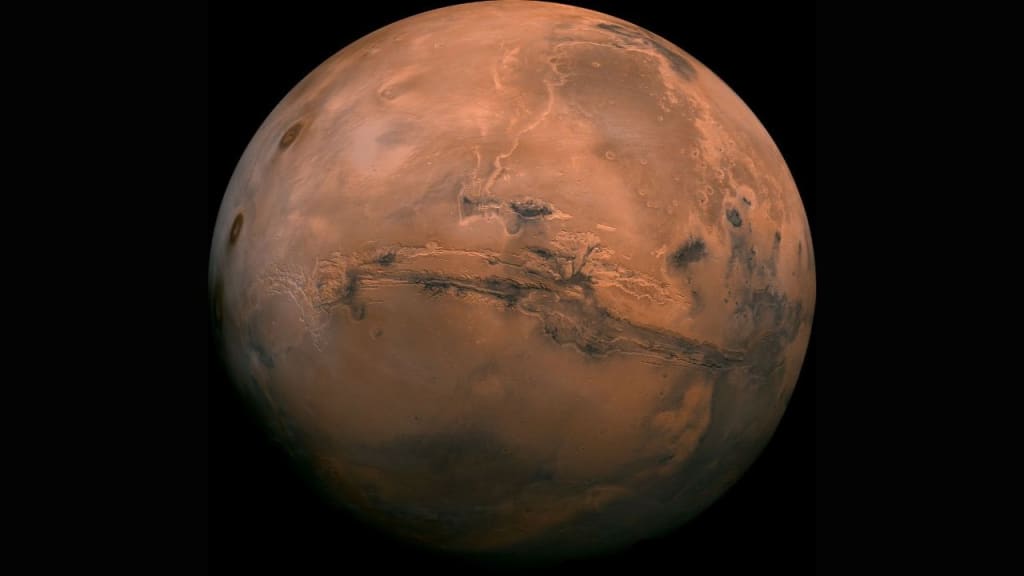Mars driving 'giant whirlpools' in Earth's deep oceans; Study reveals
Earth's

According to new research, Mars may be causing massive whirlpools in Earth's deep oceans. Scientists discovered this surprising connection while studying rocks and sediments on the ocean floor.
Scientists have discovered a remarkable link between Mars and Earth's deep oceans, implying that the red planet may be driving 'giant whirlpools' beneath the waves, according to a new study as per CNN.
Unexpected discoveries
In a groundbreaking study published in the journal Nature Communications, researchers reveal that Mars, despite being approximately 140 million miles away, may play an important role in shaping Earth's deep-sea currents. \
Adriana Dutkiewicz, co-author of the study and a sedimentologist at the University of Sydney, was surprised by the findings, saying, "They are linked to cycles in the interactions of Mars and Earth orbiting the Sun."
The study is the first to connect the two planets' orbits, highlighting a phenomenon known as "resonance." The gravitational interaction between Mars and Earth changes the shape of their orbits and affects their distance from the sun. As a result, Earth experiences periods of increased solar energy, which causes warmer climates and stronger ocean currents.
Implications for climate and ocean dynamics
According to Dietmar Müller, a study co-author and professor of geophysics at the University of Sydney, these findings shed light on natural climate cycles that have lasted 2.4 million years. While these cycles have an impact on ocean currents and warming trends, they are not the same as human-caused rapid climate change.
According to the study, these deep-sea currents are "giant whirlpools," capable of reaching the ocean floor and reshaping underwater landscapes. Scientists discovered these powerful eddies by analyzing sediment cores from hundreds of deep-sea sites.
Insights for future climate modeling
Joel Hirschi, associate head of marine systems modeling at the UK's National Oceanography Centre, praised the study's methodology and suggested a link between Mars and the observed 2.4 million-year cycle in sea sediments. However, he cautioned against drawing speculative conclusions about the impact of these eddies on ocean circulation in warmer regions.
Even though there is still much we don't know about predicting the future climate, the scientists who conducted the study believe their research is critical. They believe that by studying ancient rocks and sediments, they can learn more about the Earth's oceans and weather. This could help us understand what might happen in the future and how to prepare for it.
New research has uncovered an intriguing connection between Mars and Earth's deep oceans. Scientists have discovered enormous swirling currents in the depths of our oceans, resembling giant whirlpools, driven by the gravitational pull of Mars.
These colossal whirlpools, also known as eddies, form when Mars and Earth align in a particular way, causing a gravitational tug that influences oceanic currents. This phenomenon occurs due to the vast distance between the two planets and their gravitational forces interacting.
The study, published in a scientific journal, sheds light on the complex interactions between celestial bodies and Earth's oceans. Researchers utilized advanced computer models to simulate these oceanic eddies and their relationship with Mars' gravitational field.
Understanding these whirlpools is crucial for comprehending Earth's oceanic dynamics and their broader implications for climate and marine ecosystems. While the influence of Mars on Earth's oceans may seem distant, it highlights the interconnectedness of celestial bodies and our planet's delicate balance.
This discovery underscores the ongoing exploration of the universe's mysteries and the profound influence of celestial bodies on Earth's natural systems. As scientists delve deeper into these connections, they unveil the intricate tapestry of the cosmos and its impact on our home planet.





Comments
There are no comments for this story
Be the first to respond and start the conversation.